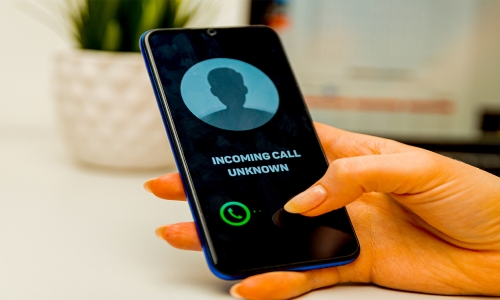ESET has warned internet users about voice phishing scams. Hackers try to trap users through social engineering in the voice phishing method, also called "Vishing".
Fraudsters aim to reach their goals by convincing internet users with psychological and social methods. Hackers often impersonate professions such as bank clerk, technology provider, government employee, IT help desk worker, creating a sense that there is an emergency that might attract the attention or interest of the user.
With the increase in companies that switched to the remote working system during the new type of coronavirus epidemic, there has been a significant increase in the number of Vishing scams. In the United States, more than 241,000 cases were reported to the FBI alone last year.
How to Avoid Voice Phishing Scams
ESET has made some suggestions to protect internet users from this fraud method called Vishing.
Do not allow your number to be shared in the phone book. Thus, your number will not be accessible to everyone.
Do not enter your phone number on online forms (for example, when shopping online).
Be wary of requests from your bank asking you to share personal or sensitive information over the phone.
In particular, do not communicate with unreliable people who ask you to confirm your sensitive information.
Never call back a number contacted via voicemail. Always contact an organization directly.
Use multi-factor authentication (MFA) for your online accounts. This adds an additional layer of security to your account and makes it harder to steal.
Make sure your email/internet security is up to date and protected against phishing attacks.
What Are the Methods of Voice Phishing Scams?
ESET experts listed the methods used by hackers in the Vishing attack type as follows:
Technology-supported scams: In this method, scammers impersonate an internet service provider or a software/hardware vendor and look for the victim. Claiming that there is a problem with the person's computer, scammers ask for card information or payment to solve this problem. Also, hackers can have malware downloaded to the victim's computer.
Auto call: Cybercriminals send automated voice messages to many victims. These messages often include tax arrears or unpaid fines.
Telemarketing: In this method, victims are called with the claim of winning a big prize. It is argued that in order to receive this reward, the victim must make an upfront payment.
Phishing theft / SMS message theft: A fake email or SMS is sent to the user to persuade them to call a number. For example, it is claimed that something went wrong with the previous order and the phone number is requested to be called.
Makalemizle iİlgili Görüşlerini Belirtebilirsin







